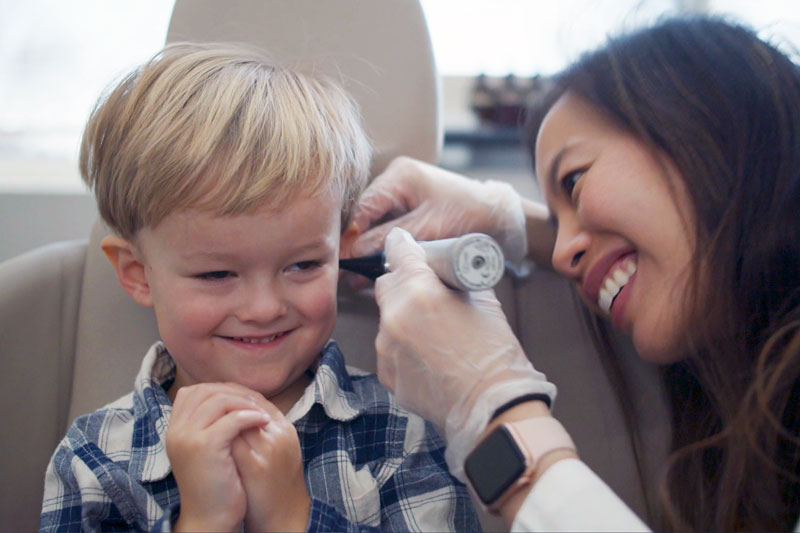If you’re over 55, odds are you know someone who has had their tonsils out. It was a common minor surgery back in the 50s, 60s, and 70s on kids who had a couple bouts of tonsillitis. A tonsillectomy was considered a good treatment for the infection and inflammation of tonsillitis.
Today ENT doctors such as our board-certified otolaryngologists at the ENT & Allergy Centers of Texas no longer think of this surgery in that way. Now, tonsillectomies are only used for chronic tonsillitis patients, patients whose bacterial infected tonsillitis isn’t responding to antibiotics, and for sleep-disordered breathing leading to sleep apnea.
Why Enlarged Tonsils Can Be a Problem
When a person has tonsillitis, the tonsils (located on the sides of the back of the mouth just behind the soft palate) become enlarged. Other people have tonsils that are naturally larger than normal. A tonsillectomy may be considered because the enlarged tonsils are causing these issues:
- Difficulty breathing
- Disrupted breathing during sleep (obstructive sleep apnea)
How is a Tonsillectomy Done?
We place patients under general anesthesia for these procedures. The procedure only takes 20-30 minutes. These are the different possible approaches we may use:
- Electrocautery – This method uses heat to remove the tonsils and stop any bleeding.
- Cold knife dissection – The tonsils are removed with a scalpel. Bleeding is then stopped with sutures or with electrocautery.
- Harmonic scalpel – This method uses ultrasonic vibrations to cut and stop bleeding from the tonsils at the same time.
- Other methods – These may include radiofrequency ablation, carbon dioxide laser, and/or a microdebrider.
What Are the Benefits of Having My Tonsils Removed?
Benefits of a tonsillectomy include:
- Continued relief from airway obstruction
- Improved sleep quality
- Decrease in ear, nose, and throat illnesses
- Decreased snoring
- Reduced related symptoms of sleep apnea, such as daytime drowsiness, irritability, etc.
If you think you may have obstructive sleep apnea, your tonsils could be the problem. Give our expert team at the ENT & Allergy Centers of Texas a call at (972) 984-1050 to set up a consultation.




